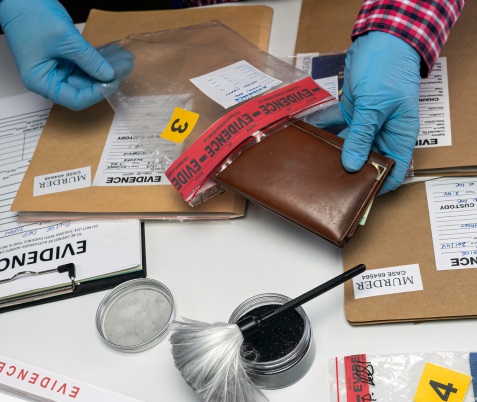What is a Mortician?
The main goal of a mortician is to honor the life of a deceased person. Secondarily, they help the family to celebrate their life. Because of the special niche into which their work falls, morticians may also act as impromptu counselors for those grieving their loss and they may also recommend grief counseling.
For people who are interested in a mortician’s career, a degree in funeral service is necessary. A two-year degree from a community college or trade school allows students to take a large step toward their goal of becoming a funeral service manager. When they become licensed, they are qualified to work in a funeral director or arrangement position. They may also be eligible to help embalm deceased bodies—or they may choose to work in a medical examiner’s office.
A career as a mortician offers a unique blend of compassion, science, and business acumen. As a funeral director, you’ll play a crucial role in helping families navigate one of life’s most challenging transitions.
The average salary for morticians is $60,500 per year, with employment opportunities expected to grow by 4% between now and 2033 according to the Bureau of Labor Statistics. This growth rate suggests a steady demand for skilled professionals in the funeral industry.
Becoming a mortician requires dedication and specialized training. You’ll need to obtain an associate’s or bachelor’s degree in mortuary science from an accredited program. This education will prepare you for the various aspects of funeral service including embalming, grief counseling, and business management. After completing your studies, you’ll gain practical experience through an apprenticeship before becoming fully licensed to practice in your state.
Path to Becoming a Mortician
Becoming a mortician requires specific education, licensing, and hands-on experience. You’ll need to complete formal training, obtain necessary certifications, and gain practical skills through apprenticeships or internships.
Educational Requirements
To become a mortician, you’ll need to complete a mortuary science program accredited by the American Board of Funeral Service Education. These programs typically offer associate’s or bachelor’s degrees.
Your coursework will include:
- Anatomy
- Chemistry
- Microbiology
- Pathology
- Mortuary Law
- Funeral Service Psychology
- Business Management
Many programs also cover embalming techniques and restorative art. You’ll gain a solid foundation in the scientific and practical aspects of funeral service.
Licensing and Certification
After completing your education, you must obtain a state license to practice as a mortician. Requirements vary by state but generally include:
- Graduating from an accredited mortuary science program
- Passing the National Board Examination
- Completing an apprenticeship or internship
You may also need to pass a state-specific exam. Some states require separate licenses for funeral directors and embalmers. To maintain your license, you’ll need to complete continuing education courses. These keep you updated on industry trends and federal regulations.
Apprenticeship and Internship Opportunities
Gaining practical experience is crucial in your journey to become a mortician. Many states require an apprenticeship or internship as part of the licensing process.
During your apprenticeship, you’ll work under a licensed mortician, learning:
- Embalming Techniques
- Funeral Arrangement Procedures
- Crematorium Operations
- Client Communication Skills
These experiences provide valuable insights into the day-to-day responsibilities of a mortician. You’ll apply your classroom knowledge to real-world situations and develop essential skills for your career.
You can look for internship opportunities at local funeral homes or through your mortuary science program. Some schools have partnerships with funeral service providers to help students gain hands-on experience.
The Role of a Mortician (What Do They Do)
Morticians perform vital functions in preparing the deceased and supporting grieving families. Their responsibilities encompass technical procedures, emotional support, and business management.
Technical Skills and Procedures
As a mortician, you’ll be responsible for preserving and preparing bodies through embalming or cremation. Embalming involves disinfecting, preserving, and restoring the deceased’s appearance. You’ll use specialized techniques and chemicals to slow decomposition and create a natural look.
For cremations, you’ll operate cremation equipment and handle the remains with care. Restorative art is another crucial skill, allowing you to reconstruct features damaged by injury or illness.
You’ll also prepare the deceased for viewing by dressing them and applying cosmetics. Proper handling of caskets, urns, and burial vaults is essential. Attention to detail is critical in all these procedures to ensure dignity for the deceased.
Communication and Emotional Support
Providing compassionate support to grieving families is a key part of your role. You’ll need excellent verbal communication skills to explain funeral options and guide families through difficult decisions. Offering the correct response to grief and emotional support requires empathy and understanding of funeral service psychology. You’ll help families navigate their loss while maintaining professional boundaries.
Customer service skills are crucial as you assist families in planning meaningful funeral services. You’ll present various options for ceremonies, memorials, and burial or cremation arrangements. Patience and sensitivity are essential when discussing these matters with bereaved individuals.
Business and Legal Aspects
As a mortician, you’ll manage various business aspects of the funeral home. This includes overseeing budgets, maintaining records, and ensuring compliance with legal regulations. You’ll need to understand and adhere to professional ethics and state laws governing funeral services. Handling paperwork such as death certificates and burial permits is a regular part of the job.
Leadership skills are important, especially if you advance to roles like Funeral Director or Mortuary Manager. You may supervise staff, manage inventory, and coordinate with vendors and cemeteries. Marketing funeral services and products is another aspect of the business. You’ll need to balance sensitivity with the need to sustain the funeral home’s operations.
Find Your Health Services Program
| Quick Facts: Funeral Service Workers | |
|---|---|
| 2023 Median Pay ?The wage at which half of the workers in the occupation earned more than that amount and half earned less. Median wage data are from the BLS Occupational Employment and Wage Statistics survey. In May 2023, the median annual wage for all workers was $48,060. | $60,580 per year $29.13 per hour |
| Typical Entry-Level Education ?Typical level of education that most workers need to enter this occupation. | Associate's degree |
| Work Experience in a Related Occupation ?Work experience that is commonly considered necessary by employers, or is a commonly accepted substitute for more formal types of training or education. | See How to Become One |
| On-the-job Training ?Additional training needed (postemployment) to attain competency in the skills needed in this occupation. | See How to Become One |
| Number of Jobs, 2023 ?The employment, or size, of this occupation in 2023, which is the base year of the 2023-33 employment projections. | 61,000 |
| Job Outlook, 2023-33 ?The projected percent change in employment from 2023 to 2033. The average growth rate for all occupations is 4 percent. | 4% (As fast as average) |
| Employment Change, 2023-33 ?The projected numeric change in employment from 2023 to 2033. | 2,500 |
Career Outlook and Advancement
The mortician career offers stable job prospects and opportunities for growth. You can expect competitive salaries and various paths for professional development as you gain experience in the field.
Job Market and Salary
Funeral service worker jobs are projected to grow by 4% from 2023 to 2033, indicating a relatively positive job outlook, with growth equal to the average of all other jobs. As a mortician, you can expect an average salary that varies based on location and experience. Entry-level positions typically start around $30,000+ per year, while experienced professionals can earn upwards of $90,000 annually in the highest-paying areas.
Factors affecting your salary include:
- Geographic Location
- Years of Experience
- Additional Certifications
- Specializations
The demand for funeral service workers is expected to remain steady, with about 2,500 job openings projected each year over the next decade.
Professional Development
Continuing education is crucial for advancing your mortician career. You can enhance your skills and knowledge through:
- Attending industry conferences
- Participating in workshops
- Joining professional organizations like the National Funeral Directors Association
Developing strong interpersonal and communication skills is essential. You’ll need to handle sensitive situations with compassion and professionalism. Time management and organizational abilities are also vital for success in this field.
Specialization and Advancement
As you gain experience, you can explore various specialization options to advance your career:
- Embalming Specialist
- Funeral Director
- Grief Counselor
- Cremation Specialist
Leadership roles may become available as you progress in your career. You might advance to positions such as:
- Funeral home manager
- Regional director for a chain of funeral homes
- Owner of your own funeral establishment
Developing business acumen and leadership skills can help you transition into these higher-level positions. Staying updated on industry trends and regulations will also contribute to your career advancement.
Professional Organizations
Students in mortuary schools, as well as professional morticians may benefit from one or more professional organizations. These organizations exist all over the country, and there are several available for different specializations in the field. For instance, cremation professionals have an organization, funeral directors who serve specific religions or faiths can choose a Jewish or Catholic association, the Department of Veterans Affairs also has an association.
The mission of NFDA is to support professionals in the funeral industry. To achieve this goal, NFDA provides its members the critical information and resources they need, as well as innovative tools and resources so they can carry out their daily duties, serving bereaved families.
CCC has committed to offering a forum for the discussion and offering of information regarding all phases of Catholic cemetery development, operation, and maintenance. CCC also helps Catholic cemetery personnel to improve cemetery services in their Archdioceses and Dioceses.
ASE was created to make known and promote excellence in the most current practice of mortuary arts and sciences. Among these, the society works to establish and promote ethical standards between colleagues in the mortuary profession.



